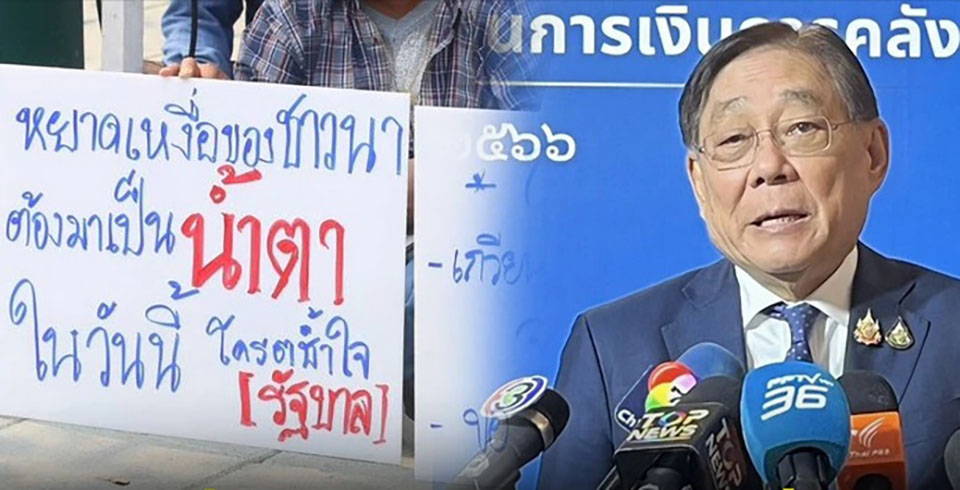
BANGKOK, Thailand – Deputy Prime Minister and Finance Minister Pichai Chunhavajira stated that addressing rice price issues requires tackling the root causes, including quality and production volume. He warned that if the government relies solely on subsidies, farmers may not develop long-term resilience.
Pichai emphasized that the Ministry of Finance is actively monitoring the situation, following recommendations from the International Monetary Fund (IMF) to reconsider the 10,000-baht cash handout policy. However, he declined to comment on whether the distribution timeline would be expedited.
Rice Price Issue: Addressing Root Causes
When asked whether the government would consider reintroducing the income guarantee policy in response to farmers’ demands, Pichai stated that the core issue lies in agricultural systems. He noted that inadequate income stems from various factors, such as rice quality and market demand.
“If we don’t fix these issues, any policy we implement will merely act as a subsidy. Long-term reliance on subsidies will prevent farmers from becoming truly self-sufficient. While immediate solutions are needed, we must also focus on structural reforms, as farmers constitute a major part of the population,” he explained.
IMF’s Recommendation on Cash Handouts
Regarding the IMF’s suggestion that the government should reallocate the 10,000-baht digital wallet funds to alternative projects, Pichai stated that the Finance Ministry is evaluating the situation.
“The situation is evolving, and we must make adjustments accordingly,” he said, without revealing specific details on potential policy modifications.
When asked whether the cash handout would be distributed sooner, Pichai simply laughed and did not provide a response.










